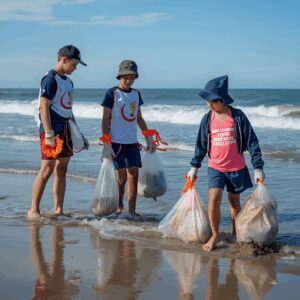The Importance of Commitment in Sport
There is a tendency for us in the Caribbean to so bury ourselves in the discipline of choice that we often miss the seemingly endless lessons to be learnt from the cross-fertilisation of ideas available to us in life.
In sport, we often advise that coaches and administrators, in particular, are always on the lookout for new ideas to assist in the improvement of their work. To be proficient in this work, they have to be reading about and around their respective disciplines as well as about what is happening in the world.
In the Caribbean we have grown accustomed to scholars who are multi-disciplinary and not locked into one aspect of academia. The likes of Sridath Ramphal, Normal Girvan, Walter Rodney, Lloyd Best, George Beckford, Edward ‘Kamau’ Brathwaite and the remarkable Rex Nettleford, all reflected the region’s capacity to produce scholars schooled in the dynamic education programmes that enlightened them and their respective generations of our Caribbean civilisation.
However, as we look around the region in the recent past, we are finding that this is an aspect of our development that is quickly fading. It appears that our contemporary education programmes are producing one-dimensional individuals who lack the immense benefits of a multi-disciplinary approach to life and work.
It is against this backdrop that we wish to encourage our sportspeople to take a leaf out of the book of Gamal Doyle, who goes by the musical sobriquet, Skinny Fabulous.
Attitude
iWitness News online dated 31 August 2024 quotes Fabulous as saying, ‘… with the right work and the right confidence and belief in yourself, you could shine through any situation.’ This was after he learnt that he had a very successful night at the Caribbean Music Awards for 2024.
Fabulous was adjudged “Artist of the Year Male (Soca)”, Song of the Year (Soca,” Collaboration of the Year and Video of the Year (Soca).
The point made by Fabulous is that there has to be a mindset adopted by the individual who wants success in his/her enmdeavours in life. Nothing comes easy in life, regardless of the task at hand.
Success has to be earned, not just given over to anyone.
The important ingrediants include a healthy belief in oneself; in one’s own abilities; and a firm commitment to take those abilities beyond ordinary. One has to strive beyong excellence. In a sense, excellence might just be getting us there. There has to be a commitment to striving to be better oneself, exceeding limits, overcoming hurdles, creating new frontiers.
In sport, the athlete has to be imnbued with self confidence. The coach has to instil in the athlete a sense that he/she possesses the talent that can be nurtured to facilitate the attainment of success in one’s event.
One of the reasons that sport psychologists have grown in importance in every sport is to encourage the athlete to attain a level of self confidence in respect of his skill competencies that he/she believes him/herself almost invincible but not to the pointof underestimating the capacity of one’s opponents on the field of play.
Possession of the skill competency is not enough, in and of itself. One has to believe in one’s capacity to bring those competencies together to create the success that he/she desires.
Many athletes never attain the confidence that make sthe difference in competition. They fall short, not because of the absence of the requisite talent. Instead, they lose before the race starts through self doubt.
What Fabulous reminds us about is that the pieces must all come together, the identification of one’s talent, the honing of that talent through consistent training and competition and the belief that one has done the work and is imbued with the confidence to make the difference in the event. This is a very powerfiul lesson for all those who dare participate in sport.
Size must be overcome
Another important point for sportspeople that Fabulous brought to the fore is the matter of the size of the country from which an individual comes.
The importance of size in our very chequered history cannot be overstated.
The colonisers were adept at belittling those who came from nations that were/are smaller in size. The tradition continues to this day. The rich and powerful nations are often considered more likely to succeed in almost every sphere of life. Of course, to them, using their own yardstick, they elevate themselves above erveryone else. They think little of smaller countries beyond identifying them as mostly impoverished and populated by people who are committed to a life founde dupon international mendicancy.
Fabulous is proud of having come from St Vincent and the Grenadines, a nation barely identifiable beyond a speck on the world map even when using a microscope.
It must be his experiences in the global entertainment industry that consistently serve to remin Fabulous of his origins and the challenges of making it in the wroadest scenario, much like the experiences of Kevin Lyttle.
Fabulous stated, ‘What I was trying to say is that, typically, when you’re from a small village or community, or in this case, a small island like St. Vincent, sometimes it’s a little bit difficult to see yourself being successful or growing to a level beyond that geographical space.’
At the recent Paris Olympics, Dominican and St Lucian athletes earned gold medals in their respective competitions. To the international community, the emphasis was, ‘where were they trained’, an incredible reflection of their traditional belief that ;nothing good cones from small nations, expecially island nations’. But this approach is not new. Our cricketers, once they displayed cricketign genius, were considered sporting aberrations. But their existence also promoted envy and jealousy to the point that regiulations had to be changed to prevent them from becoming global champiobs with any level of consistency.
The sadness of the current discourse is rendered worse by the fact that some of the comments were and are made by peoples from the Caribbean. This is what Fanon wrote about. It is about our refusal to develop; our refusal to see each other as brthers and sisters who share much more that being from the same region. The difference in geographical size does not, in and of itself, mean that there is some sort of divine right to producing athletes of a higher standard and certainly not in terms of achievement oper head of population.
In international sport we often ask that rankings be related to per head of population but that will never happen since small nations are scoffed at all too often.
The people of Dominica and St Lucia are aware of the challenges they face every day and in every sphere of life. They enjoy the achievements of their athlete and do whatever they can to express that feeling in the only way they know, in their resppective cultures, This no one can deny them.
Athletes from small nations are often deemed les sthan human, if one listens most intently to conversations at different forums. Successes are seen as rare occurences, giving strength to their arguments. Unfortunately, our own dibisiveness, left as slavery’s most enduring legacy, compels us to turn on each other rather than reach out to each other to help build a stronger, cohesive Caribbean.
A call to action
Fabulous is quoted as saying, ‘And so, what I was trying to say is that I was surrounded by people who believed in me, I believed in myself, and it paid off.’ This is what every Caribbean athlete, engaged in individual or team sport, must strive for, an approach that draws in believers in his/her capacity to achieve success. While we are from islands we do not each have to become an island unto oneself, nor should we encourage such an approach.
Alost prophetically, Fabulous declares, ‘But if you zoom in to the Caribbean itself, countries like St. Vincent, we also had our struggles with being recognised within the Caribbean, and how important we are to what the Caribbean music landscape looks like, particularly in soca music.’
The struggle of Vincentian peoples amongst the peoples of the Caribbean is real. The West Indies Federation’s demise in 1962 is never far from us. There are abundant echoes everywhere. We are constantly reminded of our failure to work together in our collective best interest. The bogey of slavery and colonialism leaves forever in cintention to prove ourselve sbetter than each other, ignoring the bigger prize, genuine Caribbean unity.
In sport, when a Caribbean athlete or team is playing, the region behaves as if united. One athlete’s success becomes that of the nation and the entire Caribbean, but not for long, if that means defeating another Caribbean athlete. This is repeated several times over, for several years. We seem unwilling to change.
But Fabulous never gave up nor is he willing to do so any time soon. His is a commitment beyond excellence, fuelled by his Vincentian roots of all varieties.
In sport, we need to have as committed an approach to buildingourselves, fully conscious that our very presence in the competition areans sends a clear nessage of who we are and who we represent. Nothing must change that.
Conclusion
In life, inspiration can come from anywhere. It is the same with sport.
The words of Skinng Fabulous send a very powerful message to all of us who have decided to make a life of sport.
Mandela reminded us of the inimitable capacity of sport to change lives. Fabulous’ words in humbly acceoting the grand musical awards for 2024 can and should eagerly be adopted by our Vincentian and Caribbean sportspeople.
Athletes, administrators, and all stakeholders in sport should carefully understand the importance of a musican artiste whose head is in the right place, helping to share the future of music and culture in and of the Caribbean to the world. History beckons!






